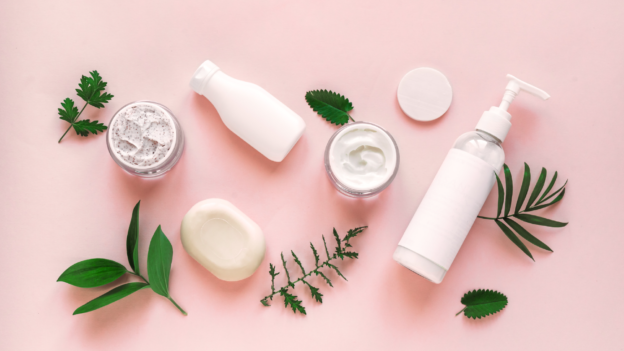Consumers are often attracted to natural products. Formulating natural products requires extra work on the part of the formulator. Without even getting into example formulations, we first must ask a very simple question: what is “natural”?
Consider citric acid, for example. It’s commonly used to adjust the acidity of cosmetic products. It’s found in citrus fruit. We could take a truck full of fruit into a lab and painstakingly extract / purify until we’re left with a small handful of citric acid. However, we need citrus fruit for other things – eating, for one thing! We don’t want to decimate the citrus crop. So, chemists have trained some microbial strains to produce citric acid when fed sugar, in a fermentation process. It meets the demand for citric acid without harming the food supply.
If you were to take a vial of the citric acid obtained from fruit and a vial of the citric acid made by fermentation, and give them to a chemist, they would not be able to tell the difference. It’s the same molecule, with the exact same structure. There’s no test that can be run to easily distinguish between the two “types” of citric acid. Most people would probably agree that the citric acid from fruit is natural. What about the citric acid made by fermentation? Synthesis took place, so is that citric acid synthetic? Semi-synthetic? Natural? Naturally derived? Remember, it’s the exact same material as the citric acid from citrus fruit. How do we label things when things get so complex?
It’s tricky. The FDA doesn’t (yet) offer much guidance, although that may change in coming months when the MOCRA legislation starts to be interpreted. For now, the FDA has not defined the term “natural” and has not established a regulatory definition for this term in cosmetic labeling. Their recommendation: “Don’t use terms such as “natural” as part of an ingredient statement because ingredients must be listed by their common or usual names, without additional description. And remember, choosing ingredients from sources you consider “organic” or “natural” is no guarantee that they are safe. You are still responsible for making sure your ingredients are safe when used according to the labeling, or as they are customarily used, no matter what kinds of ingredients you use”.
There is currently a bill in Congress that would more clearly define what someone can and cannot claim as a natural ingredient:
https://www.natlawreview.com/article/natural-cosmetics-products-without-clear-definition
It’s a tricky situation:
https://www.cosmeticsbusiness.com/news/article_page/How_is_natural_regulated_in_the_US/165850
You could find yourself in legal jeopardy. There have been several lawsuits over the use of the term “natural” when used in cosmetics. Sometimes the court agreed that the cosmetics manufacturer was stepping over a line. Sometimes the court decided that because the company went out of their way to explain (on their website) what their definition of “natural” meant, that the consumer was adequately informed, and the company was not liable for any damages.
This is a very sensitive area right now. Companies are being sued. Companies are retaining legal counsel to advise them. The FDA is throwing its hands up. MOCRA is looming over everything, despite having loosely written language whose interpretation is in some cases uncertain. Terms are being invented: “naturally derived”, “plant-derived”, “nature-identical”, “nature-inspired”. What weight and precise definition these phrases carry is uncertain, and uncertainty is always a risk for (especially) small companies.
My advice? For now, don’t try to formulate “natural” products. Focus on making great products that are safe and effective, and maybe let the ground settle on the use of the word “natural” for a few months. Don’t give up looking to Nature for inspiration and valuable additives. Plants have a lot to offer! But when it comes to marketing your products, I would highly recommend staying away from the word “natural”, at least for now. If you do want to venture into this dangerous ground, you simply must have legal counsel advising you. I normally recommend www.registrarcorp.com for this type of careful legal guidance.

